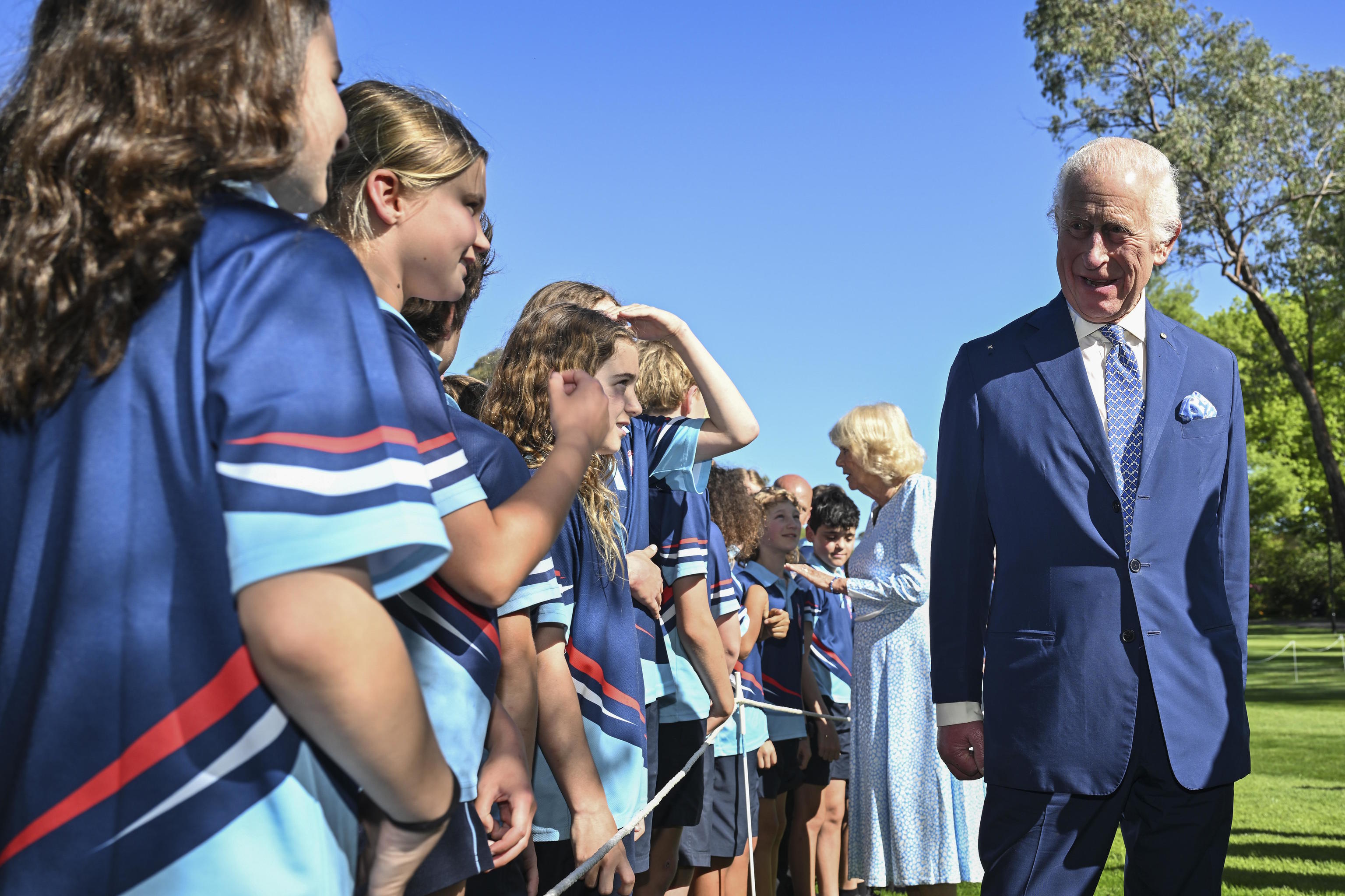Carlos III praised democracy and brevity at the beginning of his visit to Australia on Sunday, forced to temporarily suspend the treatment for the cancer he was diagnosed with earlier this year and to streamline his official events in the oceanic country to ensure his health is not affected. During his visit to the New South Wales Parliament, the king symbolically gifted a sand timer to local politicians and tailored his speech accordingly...
"With time pressing us to be brief, I can only say that I feel great joy in visiting Australia for the first time as sovereign and I aspire to renew the love for this country and its people that I have harbored for so long."
The 75-year-old king updated his own speech from half a century ago, during one of his first 16 visits to Australia as Prince of Wales, emphasizing the need for "an evolution of democratic systems" to adapt to the times. "When supported by wisdom and good faith, democracy has a great capacity for innovation, engagement, and stability," he said.
Even briefer than his speech was the official lunch. Known for his frugality at the table, Carlos barely tasted the first course (grilled asparagus) and left after 10 minutes with Camila, before the marinated octopus and duck confit were served. Without needing to justify himself to the diners, the king left following the doctors' prescription for the six days of his Australian tour: brief encounters, no gala dinners, and no official events in the evening.
Upon arriving in the country, Carlos and Camila actually took a day off to overcome jet lag and recharge. Their absence was covered for hours by the giant image of the royal couple reflected in the night on the shells of the Sydney Opera House, as a radiant welcome and in contrast to the commotion created by the Australian Republican Movement, which calls for a new referendum on the Monarchy after the one held in 1999 (Australia is one of the 15 Commonwealth realms that still recognize the British monarch as their own head of state).
The visit officially began on Sunday morning with attendance at the mass officiated by the Archbishop of Sydney, Kanishka Raffel, at St. Thomas' Anglican Church. The royals bypassed protocol at the entrance and spent several minutes shaking hands and exchanging laughs with the numerous admirers gathered around the temple.
The Australian Monarchist League contributed in its own way to the displays of loyalty by distributing hundreds of flags from both countries. God save the king overwhelmingly prevailed over Not my king!, shouted by just about twenty republican protesters outside the church.
Among them, Wayne Wharton, an Australian Aboriginal resident in Brisbane, explained to the BBC his stance on the visit of the British monarch and his consort: "I do not recognize the illegal occupation of this country and I join the voices calling for decolonization. I accuse the king of crimes against the sovereign nations of this country."
A true republican snub awaits the king on Monday at the official reception scheduled in Canberra. At least six regional leaders - from New South Wales, Victoria, Queensland, Tasmania, Western Australia, and South Australia - have declined their attendance for various reasons. They have earned the label of woke from the British tabloids for this.
Australian Prime Minister, Anthony Albanese, a Labor and republican, personally welcomed Carlos and Camila at Admiralty House, where they will stay during their visit to the country. "Their Majesties have a deep respect for Australia, and this visit will be a great opportunity to show them the best of this modern and dynamic nation," Albanese wrote on his X account.
Carlos III also wanted to mark his visit with a reminder of his own illness. One of the most notable meetings will be with Georgina Long and Richard Scolyer, pioneers in melanoma research, the most common type of cancer in Australia.
